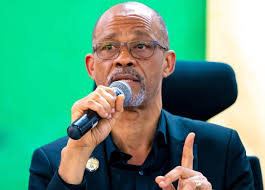
Nigeria is calling on African nations to step up their fight against malaria, warning that the continent continues to shoulder the heaviest burden of the disease despite decades of intervention. With nearly 600,000 deaths reported in 2023 alone, officials say urgent and coordinated action is essential to meet the goal of malaria elimination by 2030.
Speaking at the “Harnessing Africa’s Central Role Against Malaria – The Big Push” meeting on Thursday at Abuja Continental Hotel, the Minister of State for Health and Social Welfare, Iziaq Salako, stressed that Africa bears the brunt of the global malaria burden, accounting for 94% of cases and 95% of deaths in 2023, equivalent to 263 million infections.
“It is deeply concerning that malaria continues to be a leading cause of illness and death across Nigeria and Africa, despite being both preventable and treatable,” Salako said. He urged governments, civil society, and development partners to launch a comprehensive “big push” by mobilizing political will, resources, and innovation to accelerate malaria elimination by 2030.
The meeting, hosted by Nigeria in partnership with the Roll Back Malaria Partnership and the African Leaders Malaria Alliance, with support from the UK Foreign, Commonwealth and Development Office, identified several emerging challenges.
These include increasing resistance to insecticides, climate change-induced extreme weather, humanitarian crises, and widening funding gaps, all of which threaten malaria control progress.
“Insecticide resistance is undermining our gains, and floods and droughts are creating new mosquito breeding sites while straining healthcare systems,” Salako explained. He also noted that displaced populations remain highly vulnerable due to limited access to prevention and treatment services.
The minister stressed the need for enhanced investment in research, development of new tools, and wider access to interventions such as insecticide-treated nets, malaria vaccines, and quality-assured combination therapies.
He highlighted Nigeria’s ongoing initiatives, including the Advisory for Malaria Elimination, the Malaria Elimination Task Force, the national test-and-treat strategy, and the rollout of the malaria vaccine.
Salako concluded with a call for unified action across the continent: “Eliminating malaria requires sustained leadership, collaboration, and adaptation. Countries that have achieved success must maintain momentum, while those still battling the disease must operationalize existing strategies and implement new interventions with urgency.”
He urged all stakeholders; governments, private sector actors, NGOs, and communities to work collectively to ensure that Africa achieves a malaria-free future by 2030.



